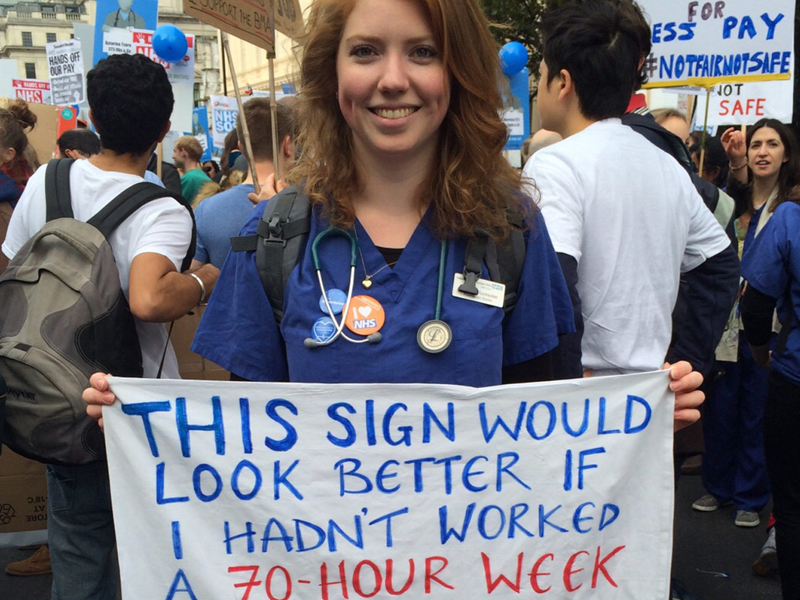January 19, 2017
Are We Expecting Too Much Of Our Junior Doctors?


Matthew Galetto
“When will the proper doctor see me? You know, the one who wears the suit.” This is what junior doctors hear from patients and their families every week.
A junior doctor must choose, order and interpret from the huge range of highly specialised and technical blood tests and imaging techniques while remaining calm, empathetic, compassionate and explaining everything to patients in plain language.
This is as well as completing and meeting all the additional administrative and regulatory requirements introduced to improve the health care system.
Junior doctors work in an environment that demands efficiency and fast turnarounds. The average length of stay in hospital is 5.9 days with an emphasis on reducing this. This drives a form of anticipatory and defensive practice.
The pace of work leads to over-ordering tests to avoid the possibility of “missing something”. This perversely leads to not ordering tests that are needed because doctors are so overwhelmed chasing up what does not need to be done.
A profound and desirable shift in practice was the arrival of evidence-based medicine. However, this has created doubt where there was once certainty. Evidence-based medicine requires gathering, consolidating and critically appraising research evidence so we know what to do or, what not to do. It improves consistency in decision-making and reduces doctors doing “their own thing”.
What we now know is there is not always enough evidence to inform practice and it does not always directly apply to a specific patient situation. We now also know what was once a “fact” becomes “fiction” when it is found not to be true. These concepts are confronting and challenging for senior medical specialists, let alone a junior doctor.

Why we need junior doctors
We need junior doctors, not only because they are the future leaders for a better health system, but because they – along with the graduate nurses and allied health professionals – contribute substantially to the smooth operation of our hospitals.
We also need junior doctors because they bring new ideas and new skills, better reflect the values of a progressive contemporary society (such as the importance of transparency, patient-centred care) and need for integration of technology into health care.
Reducing the pressures on junior doctors is possible. Showing appreciation for their contribution to the overall health system should be a simple matter. We only need to reflect on the recent experiences in the UK’s National Health Service – where junior doctors marched on the streets to protest their pay and conditions – to be reminded what happens if we fail to do so.
Another step is to think of a better title, one that recognises junior doctors’ potential as future leaders, to listen to their ideas and ask them to engage their peers to improve patient safety.
The terms “young”, “junior”, “beginner” and “novice” fail to recognise the skills the person who recently graduated bring to the workplace.
Perhaps the most challenging is to stop comparing and recognise junior doctors have strengths and that senior doctors have their limitations. A world class health system requires working together. Wearing a suit is a personal choice, not a marker of medical competency.
Joseph Ibrahim, is Professor, Health Law and Ageing Research Unit, Department of Forensic Medicine, Monash University
This article was originally published on The Conversation. Read the original article.

Matthew Galetto
Sign up to the newsletter
- National Coronavirus Helpline - 11/06/2020
- Coronavirus clinical coding concepts now available in MediRecords - 07/02/2020
- Great New Features Added in 2019 - 13/01/2020




